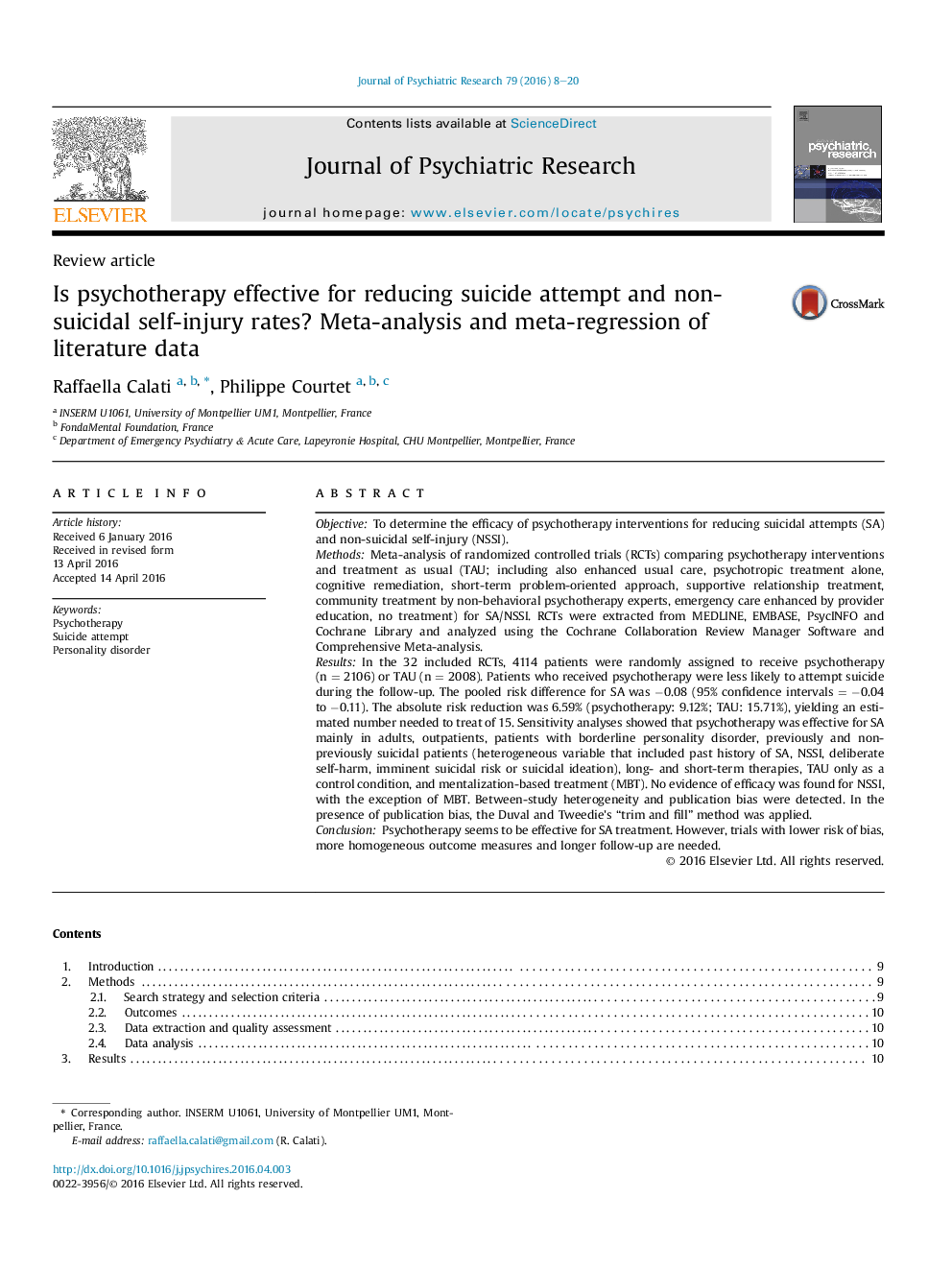| Article ID | Journal | Published Year | Pages | File Type |
|---|---|---|---|---|
| 326919 | Journal of Psychiatric Research | 2016 | 13 Pages |
ObjectiveTo determine the efficacy of psychotherapy interventions for reducing suicidal attempts (SA) and non-suicidal self-injury (NSSI).MethodsMeta-analysis of randomized controlled trials (RCTs) comparing psychotherapy interventions and treatment as usual (TAU; including also enhanced usual care, psychotropic treatment alone, cognitive remediation, short-term problem-oriented approach, supportive relationship treatment, community treatment by non-behavioral psychotherapy experts, emergency care enhanced by provider education, no treatment) for SA/NSSI. RCTs were extracted from MEDLINE, EMBASE, PsycINFO and Cochrane Library and analyzed using the Cochrane Collaboration Review Manager Software and Comprehensive Meta-analysis.ResultsIn the 32 included RCTs, 4114 patients were randomly assigned to receive psychotherapy (n = 2106) or TAU (n = 2008). Patients who received psychotherapy were less likely to attempt suicide during the follow-up. The pooled risk difference for SA was −0.08 (95% confidence intervals = −0.04 to −0.11). The absolute risk reduction was 6.59% (psychotherapy: 9.12%; TAU: 15.71%), yielding an estimated number needed to treat of 15. Sensitivity analyses showed that psychotherapy was effective for SA mainly in adults, outpatients, patients with borderline personality disorder, previously and non-previously suicidal patients (heterogeneous variable that included past history of SA, NSSI, deliberate self-harm, imminent suicidal risk or suicidal ideation), long- and short-term therapies, TAU only as a control condition, and mentalization-based treatment (MBT). No evidence of efficacy was found for NSSI, with the exception of MBT. Between-study heterogeneity and publication bias were detected. In the presence of publication bias, the Duval and Tweedie's “trim and fill” method was applied.ConclusionPsychotherapy seems to be effective for SA treatment. However, trials with lower risk of bias, more homogeneous outcome measures and longer follow-up are needed.
